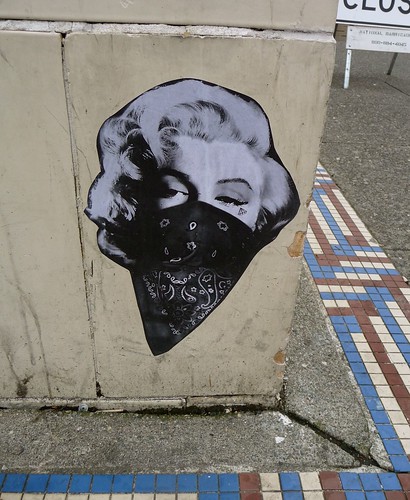 Good morning good morning — what can I give you this morning from this place of quiet and green tea?
Good morning good morning — what can I give you this morning from this place of quiet and green tea?
I’m excited and nervous about today’s Conversations with Writers presentation at UC Davis — mostly looking forward to the Q&A time after the talk. We’ll talk about what’s liberatory about an erotic writing practice, about writing about sex or desire in a community, about the power of owning and naming one’s longings — especially now, at this time of struggle and revolution, the power of deep embodiment and creative practice.
And then maybe there’ll be a couple of readings, too, from the chapbooks: pink and devastating or what they didn’t teach us. That will be fun, too.
~~ ~~ ~~ ~~ ~~ ~~
I’ve got an old write for this morning’s post: write about fourth grade. My cousin reminded me of this era, the bandana era, in an email she sent recently, and so I’ve been remembering that time. This is a piece I wrote in a workshop a couple of years ago.
All my third or fourth grade year I wore a red bandana, the kind that most folks would be more accustomed to finding shoved down into some farmer’s back pocket or maybe tied around the neck of a scruffy dog called Bandit. Only a very much later did I learn that there was a whole kind of signaling and signifying going on in some people’s back pockets, speaking codes of desire and longing and acts wanted and acts that would be performed. Only later did I learn that flags, that colors, could be the claiming of sides, of tribe markers, of bloods or crips, of klansmen—of course, I knew something about colors, I knew something about the red my whole town turned on Nebraska game days, I knew how red meant home and my team and ours vs. yours and yes verses no—I just hadn’t put all these unintelligible factionalizations together yet. Humpty Dumpty hadn’t quite come all together apart for me by that time. When I was in the fourth grade, I think, from 7 to 8, I wore a red bandana, folded in a triangle that I then knotted at the base of my head. My father had taken me and my sister to the SuperCuts or HeadShots or QuikSnips or whatever the place was called, and he had told the two separate stylists (as they were euphemistically known) to give us pixie cuts. Now, my fondest wish at that time, besides being able to maybe touch little Ricky Schroeder with my own hands or getting to spend all day reading sometimes, was to have hair like Crystal Gayle, who Don’t It Make My Brown Eyes Blue’d all over the stage with her long brown mane dusting the floor behind her feet. When she sat down to be interviewed by the Mandrel Sisters on their Sunday night variety show right out of Hee Haw, Crystal had to sweep the mass out from underneath her so she could sit down. I was not happy with the pixie cut –but we were maybe staying with my father for the summer or maybe he just felt our respective locks were too long for us to manage alone and we were getting too big for a parent to be in the bathroom with us, sudsing up our scalps with some apple-smelling shampoo—as soon as we left the SuperCuts, I lifted the hood on my jacket and cinched down the tethers on either side so that no one could see my head. My sister did not try to hide her Julie Andrews—Peter Panny ‘do—she got to like it soon enough. I hid all the way home, through the market where we saw either a teacher of ours or a boy I had a crush on (possibly both) and I ducked behind a row of canned fruit and boxed cake mix. At home, I got the bandana and I promised to wear I till my hair showed out the bottom.
I did the same when I transitioned from boyness to girlness, in my thirties, covered my head, marked the change. I prefer to mask my shape shiftings in the plainest kind of view.
Today’s nablopomo prompt: Describe a favorite place. Focus on how that place affects your sense of taste, touch, sight, sound, or smell. (Guest Post by Adrienne McDonnell)
So, a couple of options for today’s write: Place, or fourth grade. What’s calling to your pen right now? Give yourself 10 minutes with one of these. In either case, let yourself into the sensory details as you’re writing.
Thanks for being here today. Thanks for your youness. Thanks for your words.
